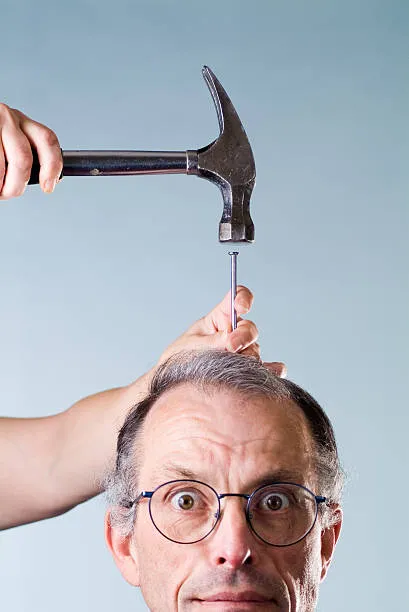Objectification raises its ugly head in many domains other than sex and men can also be its victims. I experience it very regularly in discussions and debates. Read on to understand how it works and expect a twist that will challenge what you’d like to believe.
What is objectification (classical feminist account)
Objectification is a central concept in feminist theory. Roughly, it is defined as seeing and/or treating a person not as a human with their own needs, interests, history, feelings, thoughts and values, but as an object to be used according to the needs of others.
It seems obviously wrong and flies directly in the face of the second formulation of Kant’s Categorical Imperative:
Act in such a way that you treat humanity, whether in your own person or in the person of any other, never merely as a means to an end, but always at the same time as an end.
— Immanuel Kant, Groundwork of the Metaphysics of Morals (my emphasis)
Or, if you prefer, it’s just against the Golden Rule: Treat Others the Way You Want to Be Treated.
Feminists focus primarily on the sexual objectification of women, but the concept is easily extended to other realms. Examples include: using women as housekeeping servants or tokenistic inclusion of people from minority groups to signal commitment to diversity.
In her seminal paper, ‘Objectification’ (1995, 257), Martha Nussbaum identified seven features typically involved in treating a person as an object:
- Instrumentality: the treatment of a person as a tool for the objectifier’s purposes;
- Denial of autonomy: the treatment of a person as lacking in autonomy and self-determination;
- Inertness: the treatment of a person as lacking in agency, and perhaps also in activity;
- Fungibility: the treatment of a person as interchangeable with other objects;
- Violability: the treatment of a person as lacking in boundary-integrity;
- Ownership: the treatment of a person as something that is owned by another;
- Denial of subjectivity: the treatment of a person as something whose experiences and feelings (if any) need not be taken into account.
Note that points 2 & 3 exclude consensual situations where a person makes an autonomous and active decision to temporarily be objectified — be it for a price or as part of a kinky game.
I won’t argue that men objectify women in this way, as Nussbaum and others have done it way better than I could. The very fact that we even have the concept of ‘notches on a bed’ is proof enough.
The dynamic here is simple. First, the objectifier’s purpose: a man wants sex. Maybe he likes sex, has some other hidden needs and sex is a proxy for satisfying them, or he just wants to have something to brag about to gain status with other men. It doesn’t matter.
Second, there are actions which follow at least some of the seven points:
- Using a woman as a tool to satisfy that need
- without caring whether she wants it
- or whether she actively participates
- or if it’s this or that woman
- or whether anything violates her boundaries
- while treating her as his own
- and not caring how she feels about it.
Naturally, not all of those will happen in every case of objectification, but some will. You get the picture.
How feminists objectify men
Men are also regularly sexually objectified. It might be less common, but as the ‘guys always want it and therefore cannot be sexually exploited’ trope slowly gives way, more of us feel empowered to talk about the sexual objectification and abuse we’ve experienced, too.
But this isn’t what I want to talk about here. I think that a much more common way in which men are objectified has nothing to do with sex.
Instead, it has to do with what the aims and goals of the objectifiers — in this case, feminists. Their main goal is not to get sex. Instead, their main goals are to: feel strong, feel in control, and gain status in their peer group.
And they use men, mostly in public discussion, as tools for achieving those aims.
I experience this very regularly myself. Here is how it usually goes:
- Instrumentality. In many discussions, I noticed early on that my interlocutor didn’t even talk to me. They just use me as an opportunity to give a lecture that will make them feel and look good and strong in front of their friends or followers — the real intended audience.
- Denial of autonomy. Whether I want to be part of such a discussion is irrelevant to them. I can repeatedly say that I don’t think this is going well and don’t want to participate, but they will just continue pressing and drilling.
- Inertness. The person would not accept my capacity to have an educated opinion on the subject and assume I’m just unreflectively reproducing patriarchal narratives or blindly following manipulative influencers. They ignore my arguments and views, continuing to press their point.
- Fungibility. The interlocutor doesn’t care if they bash me or another man. The point is to feel better for having bashed some men. They don’t even treat me as an individual — I’m just a personification of the Patriarchy, a nameless ‘male’ who represents everything they hate and fear.
- Violability. My interlocutors would regularly feel entitled to say things which obviously cross any boundaries of decency and respect. They question my academic credentials, imply I have a nefarious hidden agenda, and even speculate about my relationship with my mother.
- Ownership. Some people feel entitled to show up every time I open my mouth and find something to disagree with and bash me for. They effectively use me as their own personal punching bag.
- Denial of subjectivity. When I describe how certain dynamics work from my perspective, the problems I face, what confuses me or what I find difficult to do in practice, I see my words questioned or trivialised and my feelings invalidated. My subjective experience can thus be safely ignored. And let me just add that I’m privileged enough to not have many difficult experiences, anxieties, or a history of abuse — but I see men who do, yet have their feelings trampled on with the same viciousness.
And just to be clear — it’s not just women who do that. I know a number of feminist men who just need to show everyone that they are ‘not like the other guys’. They’re woker-than-though and they absolutely also do all of the above, using me and other men as tools in their quest to present themselves as morally superior and gain status in the woke community.
In case you started feeling smug and self-righteous, guys
If you’ve read that far and you’re a man, you’re probably thinking:
OMG, this! 100%! What horrible people those feminists are!
But if you’re a feminist, you’re probably thinking:
Wait, don’t men and anti-feminists do all those things to us, too?

Oops…
They absolutely do!
So yes, there is a twist in this story. The title was a bait. What? I warned you in the intro!
So stop drinking the sweet sweet nectar of victimhood, guys, and read on.
The same dynamic absolutely plays out the other way as well. Just think about every ‘Ben Shapiro DESTROYS feminist X’ video. Every troll setting out to trigger some feminists. Every ‘rational analysis’ of feminist arguments in the manosphere.
What are these if not some guys with a need to feel powerful and climb up the lobster hierarchy?
The need to feel strong, in control, and to impress peers is not a feminist need. It’s a human need. We are all horrible enough to objectify each other for the sake of satisfying that need. And it goes way beyond the gender domain — you’ll see it in politics, religion, any social issue where there are polarised opinions.
It’s no wonder that we’re having the same pointless discussions over and over again. Resolving the problems was never the aim of either side. The true aim was just to make ourselves look smarter, stronger, and impress our peers. The arguments, experiences or feelings of the other side don’t matter. The people on the other side are just tools we can use to make ourselves feel and look better.
And no, dear feminists — you’re not off the hook just because I turned this around. You know who you are.
So if you’re reading this, whether you’re a feminist or not, stop and think:
- What is your real aim when you engage in debates and arguments? Is it to actually hear what the other person has to say, learn something and work out some answers? Or is it to show your superiority, feel strong, and in control, and impress your peers?
- Are you treating the person you’re discussing as a human who has their own perspective, feelings, wants and needs, who might be sensitive on some points, who shouldn’t be insulted and disrespected? Or are they a faceless punchbag representing something you dislike, to be used as an example and a tool to make your point?
Objectification goes way beyond the realm of sexuality, and we should eradicate it in polarised discussions just as much as we should in sex.
Men and women, woke and conservative, feminist or not, we all do it.
And we should all check ourselves and stop.
Maybe then we can start actually resolving some of those issues we’ve been pointlessly debating for years.

